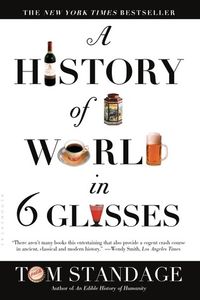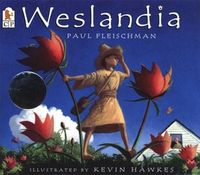
A History of the World in 6 Glasses
A History, Audiobook, Nonfiction book. The Arabs understandably did everything they could to protect their monopoly. Coffee beans were treated before...
Throughout human history, certain drinks have done much more than just quench thirst. As Tom Standage relates with authority and charm, six of them have had a surprisingly pervasive influence on the course of history, becoming the defining drink during a pivotal historical period. A History of the World in 6 Glasses tells the story of humanity from the Stone Age to the 21st century through the lens of beer, wine, spirits, coffee, tea, and cola. Beer was first made in the Fertile Crescent and by 3000 B.C.E. was so important to Mesopotamia and Egypt that it was used to pay wages. In ancient Greece wine became the main export of her vast seaborne trade, helping spread Greek culture abroad. Spirits such as brandy and rum fueled the Age of Exploration, fortifying seamen on long voyages and oiling the pernicious slave trade. Although coffee originated in the Arab world, it stoked revolutionary thought in Europe during the Age of Reason, when coffeehouses became centers of intellectual exchange. And hundreds of years after the Chinese began drinking tea, it became especially...
Download or read A History of the World in 6 Glasses in PDF formats. You may also find other subjects related with A History of the World in 6 Glasses.
- Filetype: PDF
- Pages: 336 pages
- ISBN: 9780802715524 / 802715524
rJkBaXF_YDb.pdf
More About A History of the World in 6 Glasses
But an oft-heard complaint, as companies spread their tentacles around the world and compete on a global playing field, is that globalization is merely a new form of imperialism. Tom Standage, A History of the World in 6 Glasses The Arabs understandably did everything they could to protect their monopoly. Coffee beans were treated before being shipped to ensure they were sterile and could not be used to seed new coffee plants; foreigners were excluded from coffee-producing areas. First to break the Arab monopoly were the Dutch, who displaced the Portuguese as the dominant European nation in the East Indies during the seventeenth century, gaining control of the spice trade in the process and briefly becoming the world's leading commercial power. Tom Standage, A History of the... Although it is no longer customary to offer visitors a straw through which to drink from a communal vat of beer, today tea or coffee may be offered from a shared pot, or a glass of wine or spirits from a shared bottle. And when drinking alcohol in a social setting, the clinking of glasses symbolically reunites the glasses into a single vessel of shared liquid. These are traditions with very ancient origins. Tom Standage, A History of the World in 6 Glasses
I didn't finish this book. We went to the library Sunday and I decided just to go ahead and return it.In short:Beer - Mesopotamia, liquid bread, drink of the peopleWine - Greeks, symposia, democracySpirits - Colonialism, Slave Trade, RevolutionCoffee - Age of reason, academic discourse, people aren't drunk all the timeTea - British... This book had a really interesting concept: to tell history broken down into the drinks that were popular during that time, but unfortunately, this book is basically a textbook and is written with the the manor and vocabulary of one. I found it a bit hard to read, but there were some interesting points like learning about Coca-Cola... An interesting way of breaking history up by beer, wine, whiskey, coffee, tea, & cola. Each came into its own in our history & may well have driven it in some ways. The basic idea along with a thumbnail of each is laid out in the introduction pretty well. Well enough that I didn't want to continue listening after about half the first...











